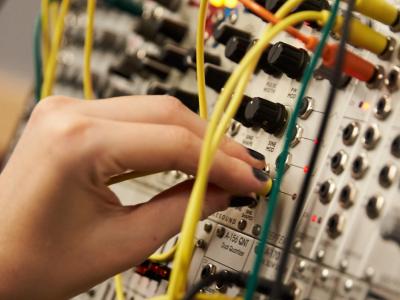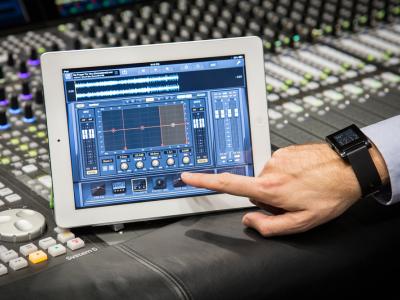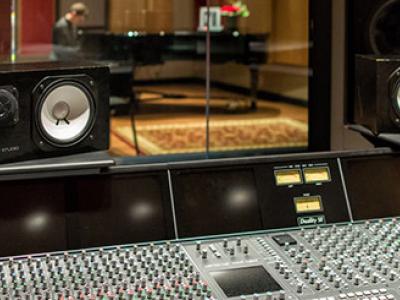What does a Mastering Engineer do?
Mastering is an often misunderstood and crucial process in the life cycle of a recording or album, the final creative step before release when its overall dynamic and spectral balance is sculpted and polished. Broadly speaking, the mastering engineer’s task is to ensure that an album is sonically cohesive and impactful, and that it will play well in any format and through any medium: as a 140-gram vinyl, digital mp3, CD, or internet stream; and played through earbuds, laptop speakers, loudspeakers in a shopping mall, or movie theater surround sound.
The work of a mastering engineer requires extensive training and practice in record production, audio technology, and—critically—the ear, a mastering engineer’s most valuable tool.
The mastering process involves listening critically to the album or track through state-of-the-art monitors in an acoustically pristine room, followed by adjusting the sound in a variety of incremental ways: using compression, equalization, and other tools to make the recording sound more vibrant, more visceral, more musical—however that may be defined by the producer or artist. Once mastering engineers have completed their work, they transfer the audio tracks to a data storage device—the master, the source from which all duplicate copies will be made.
Mastering engineers also address more straightforward issues, such as removing tongue clicks and vocal hiss, and are occasionally called upon to resolve serious audio problems. For example, when Kurt Cobain loosed a scream so bloodcurdling that the engineer recording the show—which would go on to become the live album From the Muddy Banks of the Wishkah—dropped the volume level mid-scream, renowned mastering engineer Bob Ludwig broke the vocal down and seamlessly reconstructed the second half of the scream.
At a Glance
The work of a mastering engineer requires extensive training and practice in record production, recording, audio technology, and—critically—the ear, a mastering engineer’s most valuable tool. Mastering engineers typically start out as runners or assistant engineers at recording studios or audio post-production companies, moving on to a career in mastering once they've gained the skills and experience. Successful mastering engineers can become renowned throughout the record industry, working on high-profile new releases and even remastering celebrated classics.
Mastering engineers typically work for mastering studios, of which Sterling Sound, the Exchange, Gateway Mastering Studios, Bernie Grundman Mastering, and Masterdisk are some of the largest. They may also work for recording studios or as freelancers. Their clients include recording artists and producers, as well as film, TV, advertising, and video game studios.
- Audio mastering, mixing, and production
- Audio mastering software
- Sound systems
- Superb ears for detail and nuance
- Collaboration
- Networking
Like mixing, mastering is—paradoxically—both solitary and collaborative. Exceptional focus and exquisite attention to detail are essential, as is the ability to spend long hours alone in a small room. However, mastering engineers must also have the sensitivity, intuition, and communication skills to understand clients' musical intentions, and to bring out the best in the music.
Freelance mastering engineers are free to determine their hours and likely work out of a home studio, while those employed by mastering facilities generally work standard business hours at a commercial mastering studio. Either way, it's a deadline-oriented field that involves juggling multiple projects for clients who are themselves scrambling to meet deadlines to get their music marketed and released.









